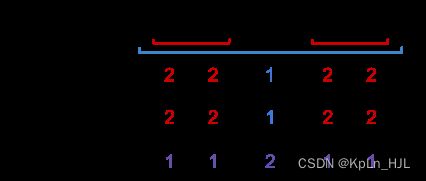- x86-64汇编语言训练程序与实战
十除以十等于一
本文还有配套的精品资源,点击获取简介:汇编语言是一种低级语言,与机器代码紧密相关,特别适用于编写系统级代码及性能要求高的应用。nasm编译器是针对x86和x86-64架构的汇编语言编译器,支持多种语法风格和指令集。项目Euler提供数学和计算机科学问题,鼓励编程技巧应用,前100个问题的答案可共享。x86-64架构扩展了寄存器数量并引入新指令,提升了数据处理效率。学习汇编语言能够深入理解计算机底层
- 三菱PLC全套学习资料及应用手册
good2know
本文还有配套的精品资源,点击获取简介:三菱PLC作为工业自动化领域的核心设备,其系列产品的学习和应用需要全面深入的知识。本次资料包为学习者提供从基础到进阶的全方位学习资源,包括各种型号PLC的操作手册、编程指南、软件操作教程以及实际案例分析,旨在帮助用户系统掌握PLC的编程语言、指令系统及在各类工业应用中的实施。1.三菱PLC基础知识入门1.1PLC的基本概念可编程逻辑控制器(PLC)是工业自动化
- 2022-10-20
体力劳动者
不因感觉稍纵即逝就不加记录。在女儿睡觉后我记下今天的小故事。接手新班级后,今天是第二次收到家长的感谢信(微信)。是我表扬次数最多的两位学生家长致来的感谢,他们明显感受到孩子自信、阳光了不少,写作业由被动变为了主动,家庭氛围也由鸡飞狗跳变成了其乐融融。在被顽皮的学生气得头晕之后,我感到了久违的价值感,责任感甚至使命感,我回复家长这样一句话:我们也需要家长的反馈好让我们的教育工作更有劲头。我也认识到,
- 移动端城市区县二级联动选择功能实现包
good2know
本文还有配套的精品资源,点击获取简介:本项目是一套为移动端设计的jQuery实现方案,用于简化用户在选择城市和区县时的流程。它包括所有必需文件:HTML、JavaScript、CSS及图片资源。通过动态更新下拉菜单选项,实现城市到区县的联动效果,支持数据异步加载。开发者可以轻松集成此功能到移动网站或应用,并可基于需求进行扩展和优化。1.jQuery移动端解决方案概述jQuery技术简介jQuery
- 15个小技巧,让我的Windows电脑更好用了!
曹元_
01.桌面及文档处理第一部分的技巧,主要是围绕桌面的一些基本操作,包括主题设置、常用文档文件快捷打开的多种方式等等。主题换色默认情况下,我们的Win界面可能就是白色的文档界面,天蓝色的图表背景,说不出哪里不好看,但是就是觉得不够高级。imageimage说到高级感,本能第一反应就会和暗色模式联想起来,如果我们将整个界面换成黑夜模式的话,它会是这样的。imageimage更改主题颜色及暗色模式,我们
- (二)SAP Group Reporting (GR) 核心子模块功能及数据流向架构解析
数据如何从子公司流转到合并报表的全过程,即数据采集→合并引擎→报表输出,特别是HANA内存计算如何优化传统ETL瓶颈。SAPGroupReporting(GR)核心模块功能及数据流向的架构解析,涵盖核心组件、数据处理流程和关键集成点,适用于S/4HANA1809+版本:一、核心功能模块概览模块功能关键事务码/FioriApp数据采集(DataCollection)整合子公司财务数据(SAP/非SA
- 9、汇编语言编程入门:从环境搭建到简单程序实现
神经网络酱
汇编语言MEPISGNU工具链
汇编语言编程入门:从环境搭建到简单程序实现1.数据存储介质问题解决在处理数据存储时,若要使用MEPIS系统,需确保有其可访问的存储介质。目前,MEPIS无法向采用NTFS格式(常用于Windows2000和XP工作站)的硬盘写入数据。不过,若硬盘采用FAT32格式,MEPIS就能进行写入操作。此外,MEPIS还能将文件写入软盘和大多数USB闪存驱动器。若工作站连接到局域网,还可通过FTP协议或挂载
- 月光下的罪恶(5)
允歌玖沐
5.被孤立顾纨是转校过来的,进入学校后,回头率很高“诶诶诶,你看那女生,哪个系的?”“不知道没见过。”“看那样,一看就是个胆小的货。”顾纨当做没听到,更狠的话她都听过,更何况女生们耍心眼?“他爸爸是做黑生意的,估计女儿也不是什么好的,你以后离他一家子远点。”她走向自己要上课的教室,一进门,所有人的目光看向她,顾纨若无其事的走进教室,开始上课。下课,一群人站起来,但是很显然,她周围的一圈人都不愿意和
- day15|前端框架学习和算法
universe_01
前端算法笔记
T22括号生成先把所有情况都画出来,然后(在满足什么情况下)把不符合条件的删除。T78子集要画树状图,把思路清晰。可以用暴力法、回溯法和DFS做这个题DFS深度搜索:每个边都走完,再回溯应用:二叉树搜索,图搜索回溯算法=DFS+剪枝T200岛屿数量(非常经典BFS宽度把树状转化成队列形式,lambda匿名函数“一次性的小函数,没有名字”setup语法糖:让代码更简洁好写的语法ref创建:基本类型的
- 贝多芬诞辰250周年纪念
万千星河赴远方
就算不是古典音乐爱好者,你也一定听说过贝多芬。作为古典音乐史上最伟大的音乐家之一,他不仅是古典主义风格的集大成者,同时也是浪漫主义风格的开创者。贝多芬肖像画(1813年)贝多芬的一生共创作了9部交响曲、36首钢琴奏鸣曲、10部小提琴奏鸣曲、16首弦乐四重奏、1部歌剧及2部弥撒曲等等。数量虽然不及前辈海顿、莫扎特多,但他几乎改造了当时所有的音乐表达形式,赋予了它们全新的价值,对后世音乐的发展产生了极
- 三件事—小白猫·雨天·八段锦
咸鱼月亮
1.最近楼下出现一只非常漂亮的粘人小白猫,看着不像是流浪猫,非常亲人。眼睛比蓝球的还大,而且是绿色的,很漂亮。第一次遇到它,它就跟我到电梯口,如果我稍微招招手,肯定就跟我进电梯了。后来我喂过它几次,好可惜不能养它,一只蓝球就是我的极限了。2.下雨天就心烦,好奇怪。明明以前我超爱看窗外的雨和听雨声,看来近来的心情不够宁静了。3.最近在练八段锦,从第一次就爱上了这个运动,很轻松缓慢,但是却出汗。感觉可
- 我不懂什么是爱,但我给你全部我拥有的
香尧
因为怕黑,所以愿意陪伴在夜中行走的人,给他一点点的安全感。因为渴望温柔与爱,所以愿意为别的孩子付出爱与温柔。因为曾遭受侮辱和伤害,所以不以同样的方式施于其他人。如果你向别人出之以利刃,对方还了你爱与包容,真的不要感激他,真的不要赞美他。每一个被人伤害过的人心里都留下了一颗仇恨的种子,他也会想要有一天以眼还眼,以牙还牙。但他未让那颗种子生根发芽,他用一把心剑又一次刺向他自己,用他血荐仇恨,开出一朵温
- C++ 计数排序、归并排序、快速排序
每天搬一点点砖
c++数据结构算法
计数排序:是一种基于哈希的排序算法。他的基本思想是通过统计每个元素的出现次数,然后根据统计结果将元素依次放入排序后的序列中。这种排序算法适用于范围较小的情况,例如整数范围在0到k之间计数排序步骤:1初始化一个长度为最大元素值加1的计数数组,所有元素初始化为02遍历原始数组,将每个元素值作为索引,在计数数组中对应位置加13将数组清空4遍历计数器数组,按照数组中的元素个数放回到元数组中计数排序的优点和
- 2023-11-02
一帆f
发现浸润心田的感觉:今天一个机缘之下突然想分享我的婆媳关系,我一边分享一边回忆我之前和儿媳妇关系的微妙变化,特别是分享到我能感受到儿媳妇的各种美好,现在也能心平气和的和老公平等对话,看到自己看到老公,以己推人以人推己自然而然的换位思考,心中有一种美好的能量在涌动,一种浸润心田的感觉从心胸向全身扩散,美好极了……我很想记住这种感觉,赶紧把它写下来以留纪念,也就是当我看见他人的美好,美好的美妙的浸润心
- 贫穷家庭的孩子考上985以后会怎样?
Mellisa蜜思言
我出生在一个贫穷的农村家庭,据我妈说,我出生的时候才4斤多,而她生完我以后月子里就瘦到70斤。家里一直很穷,父母都是在菜市场卖菜的,家里还有几亩地种庄稼的。我很小开始就要去帮忙,暑假的生活就是帮忙去卖菜和割稻谷,那时候自己对于割稻谷这种事情有着莫名的恐惧,生怕自己长大以后还是每年都要过着割稻谷这种日子。父母因为忙于生计无暇顾及我的学习,幸好我因为看到他们这样子的生活,内心里有深深的恐惧感,驱使着我
- 实时数据流计算引擎Flink和Spark剖析
程小舰
flinkspark数据库kafkahadoop
在过去几年,业界的主流流计算引擎大多采用SparkStreaming,随着近两年Flink的快速发展,Flink的使用也越来越广泛。与此同时,Spark针对SparkStreaming的不足,也继而推出了新的流计算组件。本文旨在深入分析不同的流计算引擎的内在机制和功能特点,为流处理场景的选型提供参考。(DLab数据实验室w.x.公众号出品)一.SparkStreamingSparkStreamin
- 48. 旋转图像 - 力扣(LeetCode)
Fiee-77
#数组leetcode算法python数据结构数组
题目:给定一个n×n的二维矩阵matrix表示一个图像。请你将图像顺时针旋转90度。你必须在原地旋转图像,这意味着你需要直接修改输入的二维矩阵。请不要使用另一个矩阵来旋转图像。示例1:输入:matrix=[[1,2,3],[4,5,6],[7,8,9]]输出:[[7,4,1],[8,5,2],[9,6,3]]示例2:输入:matrix=[[5,1,9,11],[2,4,8,10],[13,3,6,
- 日更50天有什么收益?
星湾二宝
坚持在平台上日更50天了,平台也为我生成了日更50天徽章,小开心一下这份坚持。日更50天徽章那坚持50天都有哪些收益呢?收益一,就是最直观的那些钻和贝,我这边确实不太高,但是这些贝足够支撑我保持会员的资格,能够在发文的时候帮助友友们去除广告,方便阅读。钻和贝收益二,文章的收获,日更50天,坚持写作3.7万文字,书写的文字也从开始的流水账/碎碎念逐渐加入自己的思考和观点。以前,一个念头会一晃而过,如
- Git 与 GitHub 的对比与使用指南
一念&
其它gitgithub
Git与GitHub的对比与使用指南在软件开发中,Git和GitHub是两个密切相关但本质不同的工具。下面我将逐步解释它们的定义、区别、核心概念以及如何协同使用,确保内容真实可靠,基于广泛的技术实践。1.什么是Git?Git是一个分布式版本控制系统,由LinusTorvalds于2005年创建。它的核心功能是跟踪代码文件的变化,帮助开发者管理项目历史记录、协作和回滚错误。Git是开源的,可以在本地
- 深入解析JVM工作原理:从字节码到机器指令的全过程
一、JVM概述Java虚拟机(JVM)是Java平台的核心组件,它实现了Java"一次编写,到处运行"的理念。JVM是一个抽象的计算机器,它有自己的指令集和运行时内存管理机制。JVM的主要职责:加载:读取.class文件并验证其正确性存储:管理内存分配和垃圾回收执行:解释或编译字节码为机器指令安全:提供沙箱环境限制恶意代码二、JVM架构详解JVM由三个主要子系统组成:1.类加载子系统类加载过程分为
- Spring进阶 - SpringMVC实现原理之DispatcherServlet处理请求的过程
倾听铃的声
后端springjavamvc开发语言分布式
前文我们有了IOC的源码基础以及SpringMVC的基础,我们便可以进一步深入理解SpringMVC主要实现原理,包含DispatcherServlet的初始化过程和DispatcherServlet处理请求的过程的源码解析。本文是第二篇:DispatcherServlet处理请求的过程的源码解析。@pdaiSpring进阶-SpringMVC实现原理之DispatcherServlet处理请求的
- ARM 和 AMD 架构的区别
m0_69576880
arm开发windows架构
ARM架构和AMD架构是两种不同的计算机处理器架构,它们有以下几个主要区别:设计出发点、兼容性、性能特点、市场定价。设计出发点:①ARM构架:ARM架构最初是为嵌入式系统设计的,旨在提供低功耗和高效能的解决方案。它主要应用于移动设备、嵌入式系统和物联网设备②AMD架构:AMD架构是基于x86架构的扩展,旨在提供与Intel架构兼容的处理器。它主要用于台式机、服务器和工作站等计算机系统。兼容性:AR
- 【C++算法】76.优先级队列_前 K 个高频单词
流星白龙
优选算法C++c++算法开发语言
文章目录题目链接:题目描述:解法C++算法代码:题目链接:692.前K个高频单词题目描述:解法利用堆来解决TopK问题预处理一下原始的字符串数组,用一个哈希表统计一下每一个单词出现的频次。创建一个大小为k的堆频次:小根堆字典序(频次相同的时候):大根堆循环让元素依次进堆判断提取结果C++算法代码:classSolution{//定义类型别名,PSI表示对typedefpairPSI;//自定义比较
- 关于流媒体播放器EasyPlayer和EasyPlayerPro的介绍以及其区别
EasyDarwin
EasyDarwin音视频ffmpeg人工智能大数据ar
EasyPlayer是一款流媒体播放器系列项目,它支持多种流媒体协议的播放,包括但不限于RTSP、RTMP、HTTP、HLS、UDP、RTP、File等。除此之外,EasyPlayer还支持本地文件播放和多种功能特性,包括本地抓拍、本地录像、播放旋转、多屏播放、倍数播放等。EasyPlayer核心基于ffmpeg,稳定、高效、可靠、可控。随着多年的不断发展和迭代,EasyPlayer基于成功的实践
- JVM 内存模型深度解析:原子性、可见性与有序性的实现
练习时长两年半的程序员小胡
JVM深度剖析:从面试考点到生产实践jvmjava内存模型
在了解了JVM的基础架构和类加载机制后,我们需要进一步探索Java程序在多线程环境下的内存交互规则。JVM内存模型(JavaMemoryModel,JMM)定义了线程和主内存之间的抽象关系,它通过规范共享变量的访问方式,解决了多线程并发时的数据一致性问题。本文将从内存模型的核心目标出发,详解原子性、可见性、有序性的实现机制,以及volatile、synchronized等关键字在其中的作用。一、J
- Flowable 实战落地核心:选型决策与坑点破解
练习时长两年半的程序员小胡
Flowable流程引擎实战指南低代码BPMN流程引擎flowable后端java
在企业级流程引擎的落地过程中,选型的准确性和坑点的预见性直接决定项目成败。本文聚焦Flowable实战中最关键的“选型决策”与“常见坑点”,结合真实项目经验,提供可落地的解决方案。一、流程引擎选型:从业务本质出发1.1选型的三大核心维度企业在选择流程引擎时,需避免陷入“技术崇拜”,应回归业务本质。评估Flowable是否适用,可从三个维度判断:业务复杂度若流程涉及动态审批链(如按金额自动升级审批)
- 2022-04-07
上善若水1979527
昨天苏阿姨来给我送普门品!和她一块来的还有另外一个阿姨!我下去拿时!那阿姨说你不是干房产的小赵!帮我租房的!我说你认识我?对啊!你帮我租的房子!我没印象了!我和保红一块!我说我想起来了阿姨!你这运动服一换!小电车一骑!一下年轻十岁我早记不得了!我只记得一九年五一带看了河滨美航还有德胜的好多套房子!你都不当意!你告诉我你每晚拜观音菩萨说快让小赵普萨帮我找套合适的房子吧!我把本子上记得半年内的德胜房源
- 互信息:理论框架、跨学科应用与前沿进展
大千AI助手
人工智能Python#OTHER人工智能深度学习算法互信息香农通信随机变量
1.起源与核心定义互信息(MutualInformation,MI)由克劳德·香农(ClaudeShannon)在1948年开创性论文《AMathematicalTheoryofCommunication》中首次提出,该论文奠定了现代信息论的基础。互信息用于量化两个随机变量之间的统计依赖关系,定义为:若已知一个随机变量的取值,能为另一个随机变量提供的信息量。数学上,对于离散随机变量XXX和YYY,
- 《实际生活是我们的指南针》——教育中寻找曙光
托克托126何芳
陶行知先生的文章相对《致青年教师》比较难理解,但是他热爱学生,在书中处处能感受到。在《实际生活是我们的指南针》文中他说道:“我虽觉得我有好多地方可以帮助诸位,但指志针确是有些不敢当。我和诸位同是在乡村里摸路的人。我们的真正指南针只是实际生活。”这些话不仅使人感到他非常谦虛,既不夸大自己的作用也不轻视自己的作用。图片发自App我们的真正指南针只是实际生活。实际生活向我们供给无穷的问题,要求不断的解决
- Java | 多线程经典问题 - 售票
Ada54
一、售票需求1)同一个票池2)多个窗口卖票,不能出售同一张票二、售票问题代码实现(线程与进程小总结,请戳:Java|线程和进程,创建线程)step1:定义SaleWindow类实现Runnable接口,覆盖run方法step2:实例化SaleWindow对象,创建Thread对象,将SaleWindow作为参数传给Thread类的构造函数,然后通过Thread.start()方法启动线程step3
- web报表工具FineReport常见的数据集报错错误代码和解释
老A不折腾
web报表finereport代码可视化工具
在使用finereport制作报表,若预览发生错误,很多朋友便手忙脚乱不知所措了,其实没什么,只要看懂报错代码和含义,可以很快的排除错误,这里我就分享一下finereport的数据集报错错误代码和解释,如果有说的不准确的地方,也请各位小伙伴纠正一下。
NS-war-remote=错误代码\:1117 压缩部署不支持远程设计
NS_LayerReport_MultiDs=错误代码
- Java的WeakReference与WeakHashMap
bylijinnan
java弱引用
首先看看 WeakReference
wiki 上 Weak reference 的一个例子:
public class ReferenceTest {
public static void main(String[] args) throws InterruptedException {
WeakReference r = new Wea
- Linux——(hostname)主机名与ip的映射
eksliang
linuxhostname
一、 什么是主机名
无论在局域网还是INTERNET上,每台主机都有一个IP地址,是为了区分此台主机和彼台主机,也就是说IP地址就是主机的门牌号。但IP地址不方便记忆,所以又有了域名。域名只是在公网(INtERNET)中存在,每个域名都对应一个IP地址,但一个IP地址可有对应多个域名。域名类型 linuxsir.org 这样的;
主机名是用于什么的呢?
答:在一个局域网中,每台机器都有一个主
- oracle 常用技巧
18289753290
oracle常用技巧 ①复制表结构和数据 create table temp_clientloginUser as select distinct userid from tbusrtloginlog ②仅复制数据 如果表结构一样 insert into mytable select * &nb
- 使用c3p0数据库连接池时出现com.mchange.v2.resourcepool.TimeoutException
酷的飞上天空
exception
有一个线上环境使用的是c3p0数据库,为外部提供接口服务。最近访问压力增大后台tomcat的日志里面频繁出现
com.mchange.v2.resourcepool.TimeoutException: A client timed out while waiting to acquire a resource from com.mchange.v2.resourcepool.BasicResou
- IT系统分析师如何学习大数据
蓝儿唯美
大数据
我是一名从事大数据项目的IT系统分析师。在深入这个项目前需要了解些什么呢?学习大数据的最佳方法就是先从了解信息系统是如何工作着手,尤其是数据库和基础设施。同样在开始前还需要了解大数据工具,如Cloudera、Hadoop、Spark、Hive、Pig、Flume、Sqoop与Mesos。系 统分析师需要明白如何组织、管理和保护数据。在市面上有几十款数据管理产品可以用于管理数据。你的大数据数据库可能
- spring学习——简介
a-john
spring
Spring是一个开源框架,是为了解决企业应用开发的复杂性而创建的。Spring使用基本的JavaBean来完成以前只能由EJB完成的事情。然而Spring的用途不仅限于服务器端的开发,从简单性,可测试性和松耦合的角度而言,任何Java应用都可以从Spring中受益。其主要特征是依赖注入、AOP、持久化、事务、SpringMVC以及Acegi Security
为了降低Java开发的复杂性,
- 自定义颜色的xml文件
aijuans
xml
<?xml version="1.0" encoding="utf-8"?> <resources> <color name="white">#FFFFFF</color> <color name="black">#000000</color> &
- 运营到底是做什么的?
aoyouzi
运营到底是做什么的?
文章来源:夏叔叔(微信号:woshixiashushu),欢迎大家关注!很久没有动笔写点东西,近些日子,由于爱狗团产品上线,不断面试,经常会被问道一个问题。问:爱狗团的运营主要做什么?答:带着用户一起嗨。为什么是带着用户玩起来呢?究竟什么是运营?运营到底是做什么的?那么,我们先来回答一个更简单的问题——互联网公司对运营考核什么?以爱狗团为例,绝大部分的移动互联网公司,对运营部门的考核分为三块——用
- js面向对象类和对象
百合不是茶
js面向对象函数创建类和对象
接触js已经有几个月了,但是对js的面向对象的一些概念根本就是模糊的,js是一种面向对象的语言 但又不像java一样有class,js不是严格的面向对象语言 ,js在java web开发的地位和java不相上下 ,其中web的数据的反馈现在主流的使用json,json的语法和js的类和属性的创建相似
下面介绍一些js的类和对象的创建的技术
一:类和对
- web.xml之资源管理对象配置 resource-env-ref
bijian1013
javaweb.xmlservlet
resource-env-ref元素来指定对管理对象的servlet引用的声明,该对象与servlet环境中的资源相关联
<resource-env-ref>
<resource-env-ref-name>资源名</resource-env-ref-name>
<resource-env-ref-type>查找资源时返回的资源类
- Create a composite component with a custom namespace
sunjing
https://weblogs.java.net/blog/mriem/archive/2013/11/22/jsf-tip-45-create-composite-component-custom-namespace
When you developed a composite component the namespace you would be seeing would
- 【MongoDB学习笔记十二】Mongo副本集服务器角色之Arbiter
bit1129
mongodb
一、复本集为什么要加入Arbiter这个角色 回答这个问题,要从复本集的存活条件和Aribter服务器的特性两方面来说。 什么是Artiber? An arbiter does
not have a copy of data set and
cannot become a primary. Replica sets may have arbiters to add a
- Javascript开发笔记
白糖_
JavaScript
获取iframe内的元素
通常我们使用window.frames["frameId"].document.getElementById("divId").innerHTML这样的形式来获取iframe内的元素,这种写法在IE、safari、chrome下都是通过的,唯独在fireforx下不通过。其实jquery的contents方法提供了对if
- Web浏览器Chrome打开一段时间后,运行alert无效
bozch
Webchormealert无效
今天在开发的时候,突然间发现alert在chrome浏览器就没法弹出了,很是怪异。
试了试其他浏览器,发现都是没有问题的。
开始想以为是chorme浏览器有啥机制导致的,就开始尝试各种代码让alert出来。尝试结果是仍然没有显示出来。
这样开发的结果,如果客户在使用的时候没有提示,那会带来致命的体验。哎,没啥办法了 就关闭浏览器重启。
结果就好了,这也太怪异了。难道是cho
- 编程之美-高效地安排会议 图着色问题 贪心算法
bylijinnan
编程之美
import java.util.ArrayList;
import java.util.Collections;
import java.util.List;
import java.util.Random;
public class GraphColoringProblem {
/**编程之美 高效地安排会议 图着色问题 贪心算法
* 假设要用很多个教室对一组
- 机器学习相关概念和开发工具
chenbowen00
算法matlab机器学习
基本概念:
机器学习(Machine Learning, ML)是一门多领域交叉学科,涉及概率论、统计学、逼近论、凸分析、算法复杂度理论等多门学科。专门研究计算机怎样模拟或实现人类的学习行为,以获取新的知识或技能,重新组织已有的知识结构使之不断改善自身的性能。
它是人工智能的核心,是使计算机具有智能的根本途径,其应用遍及人工智能的各个领域,它主要使用归纳、综合而不是演绎。
开发工具
M
- [宇宙经济学]关于在太空建立永久定居点的可能性
comsci
经济
大家都知道,地球上的房地产都比较昂贵,而且土地证经常会因为新的政府的意志而变幻文本格式........
所以,在地球议会尚不具有在太空行使法律和权力的力量之前,我们外太阳系统的友好联盟可以考虑在地月系的某些引力平衡点上面,修建规模较大的定居点
- oracle 11g database control 证书错误
daizj
oracle证书错误oracle 11G 安装
oracle 11g database control 证书错误
win7 安装完oracle11后打开 Database control 后,会打开em管理页面,提示证书错误,点“继续浏览此网站”,还是会继续停留在证书错误页面
解决办法:
是 KB2661254 这个更新补丁引起的,它限制了 RSA 密钥位长度少于 1024 位的证书的使用。具体可以看微软官方公告:
- Java I/O之用FilenameFilter实现根据文件扩展名删除文件
游其是你
FilenameFilter
在Java中,你可以通过实现FilenameFilter类并重写accept(File dir, String name) 方法实现文件过滤功能。
在这个例子中,我们向你展示在“c:\\folder”路径下列出所有“.txt”格式的文件并删除。 1 2 3 4 5 6 7 8 9 10 11 12 13 14 15 16
- C语言数组的简单以及一维数组的简单排序算法示例,二维数组简单示例
dcj3sjt126com
carray
# include <stdio.h>
int main(void)
{
int a[5] = {1, 2, 3, 4, 5};
//a 是数组的名字 5是表示数组元素的个数,并且这五个元素分别用a[0], a[1]...a[4]
int i;
for (i=0; i<5; ++i)
printf("%d\n",
- PRIMARY, INDEX, UNIQUE 这3种是一类 PRIMARY 主键。 就是 唯一 且 不能为空。 INDEX 索引,普通的 UNIQUE 唯一索引
dcj3sjt126com
primary
PRIMARY, INDEX, UNIQUE 这3种是一类PRIMARY 主键。 就是 唯一 且 不能为空。INDEX 索引,普通的UNIQUE 唯一索引。 不允许有重复。FULLTEXT 是全文索引,用于在一篇文章中,检索文本信息的。举个例子来说,比如你在为某商场做一个会员卡的系统。这个系统有一个会员表有下列字段:会员编号 INT会员姓名
- java集合辅助类 Collections、Arrays
shuizhaosi888
CollectionsArraysHashCode
Arrays、Collections
1 )数组集合之间转换
public static <T> List<T> asList(T... a) {
return new ArrayList<>(a);
}
a)Arrays.asL
- Spring Security(10)——退出登录logout
234390216
logoutSpring Security退出登录logout-urlLogoutFilter
要实现退出登录的功能我们需要在http元素下定义logout元素,这样Spring Security将自动为我们添加用于处理退出登录的过滤器LogoutFilter到FilterChain。当我们指定了http元素的auto-config属性为true时logout定义是会自动配置的,此时我们默认退出登录的URL为“/j_spring_secu
- 透过源码学前端 之 Backbone 三 Model
逐行分析JS源代码
backbone源码分析js学习
Backbone 分析第三部分 Model
概述: Model 提供了数据存储,将数据以JSON的形式保存在 Model的 attributes里,
但重点功能在于其提供了一套功能强大,使用简单的存、取、删、改数据方法,并在不同的操作里加了相应的监听事件,
如每次修改添加里都会触发 change,这在据模型变动来修改视图时很常用,并且与collection建立了关联。
- SpringMVC源码总结(七)mvc:annotation-driven中的HttpMessageConverter
乒乓狂魔
springMVC
这一篇文章主要介绍下HttpMessageConverter整个注册过程包含自定义的HttpMessageConverter,然后对一些HttpMessageConverter进行具体介绍。
HttpMessageConverter接口介绍:
public interface HttpMessageConverter<T> {
/**
* Indicate
- 分布式基础知识和算法理论
bluky999
算法zookeeper分布式一致性哈希paxos
分布式基础知识和算法理论
BY
[email protected]
本文永久链接:http://nodex.iteye.com/blog/2103218
在大数据的背景下,不管是做存储,做搜索,做数据分析,或者做产品或服务本身,面向互联网和移动互联网用户,已经不可避免地要面对分布式环境。笔者在此收录一些分布式相关的基础知识和算法理论介绍,在完善自我知识体系的同
- Android Studio的.gitignore以及gitignore无效的解决
bell0901
androidgitignore
github上.gitignore模板合集,里面有各种.gitignore : https://github.com/github/gitignore
自己用的Android Studio下项目的.gitignore文件,对github上的android.gitignore添加了
# OSX files //mac os下 .DS_Store
- 成为高级程序员的10个步骤
tomcat_oracle
编程
What
软件工程师的职业生涯要历经以下几个阶段:初级、中级,最后才是高级。这篇文章主要是讲如何通过 10 个步骤助你成为一名高级软件工程师。
Why
得到更多的报酬!因为你的薪水会随着你水平的提高而增加
提升你的职业生涯。成为了高级软件工程师之后,就可以朝着架构师、团队负责人、CTO 等职位前进
历经更大的挑战。随着你的成长,各种影响力也会提高。
- mongdb在linux下的安装
xtuhcy
mongodblinux
一、查询linux版本号:
lsb_release -a
LSB Version: :base-4.0-amd64:base-4.0-noarch:core-4.0-amd64:core-4.0-noarch:graphics-4.0-amd64:graphics-4.0-noarch:printing-4.0-amd64:printing-4.0-noa

